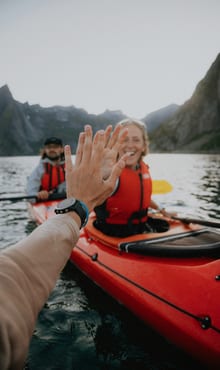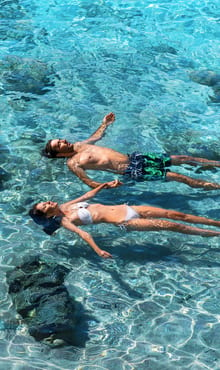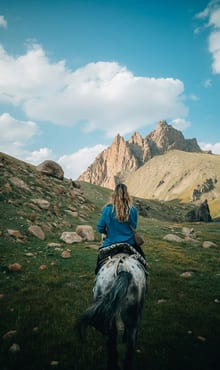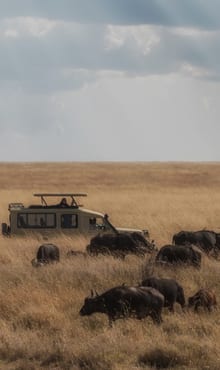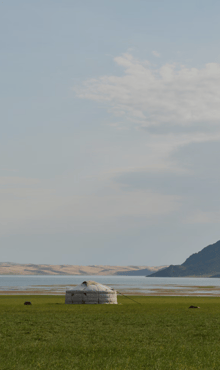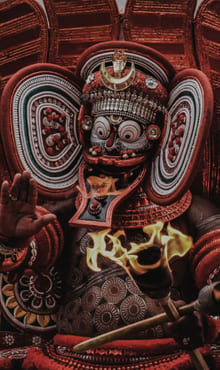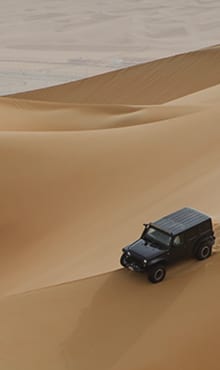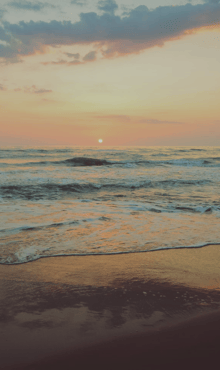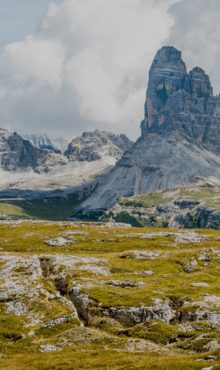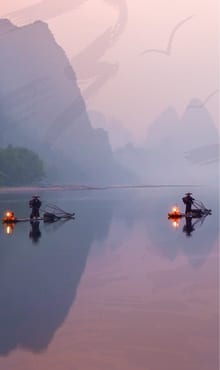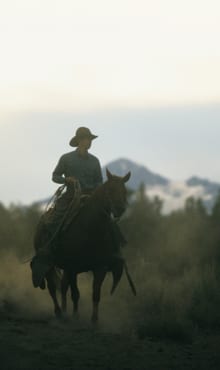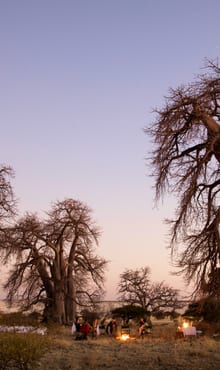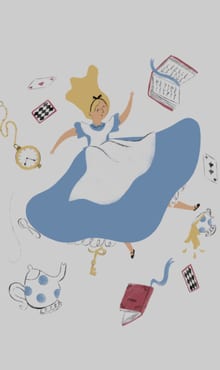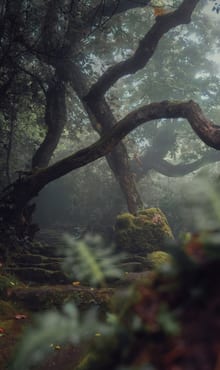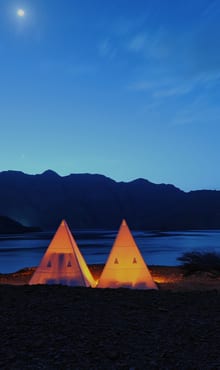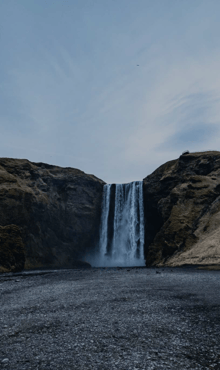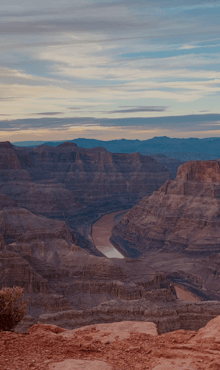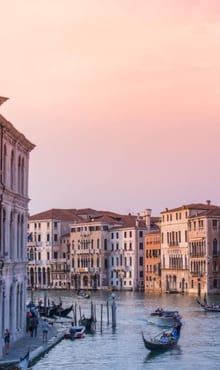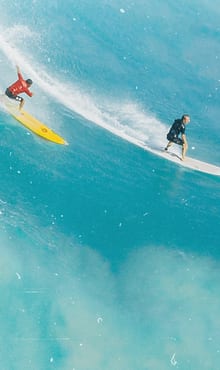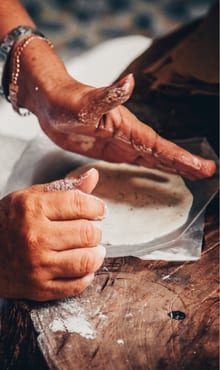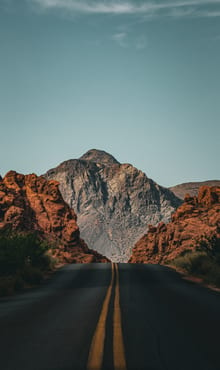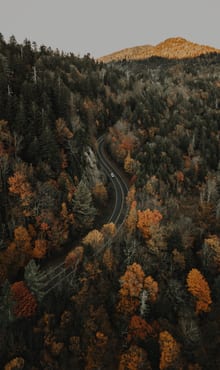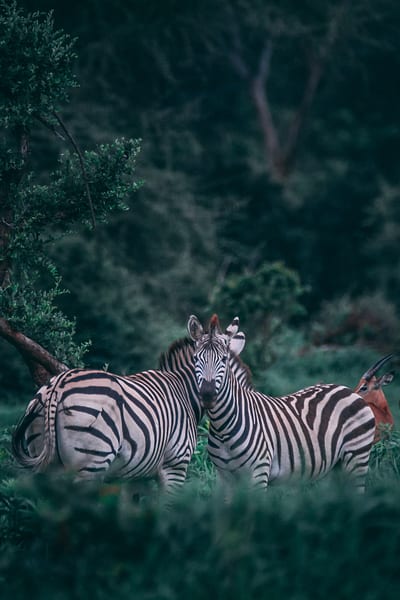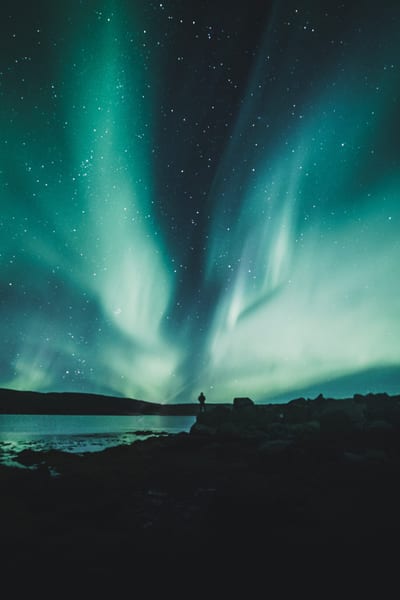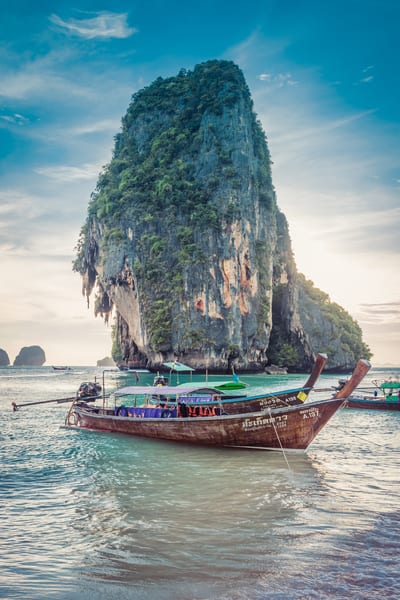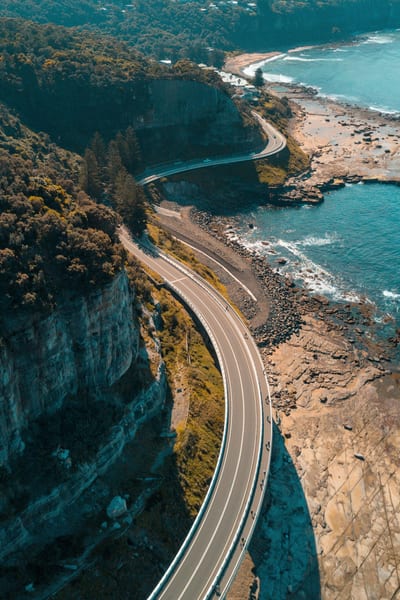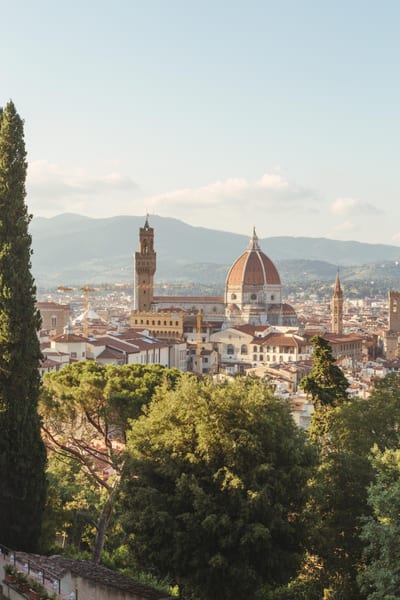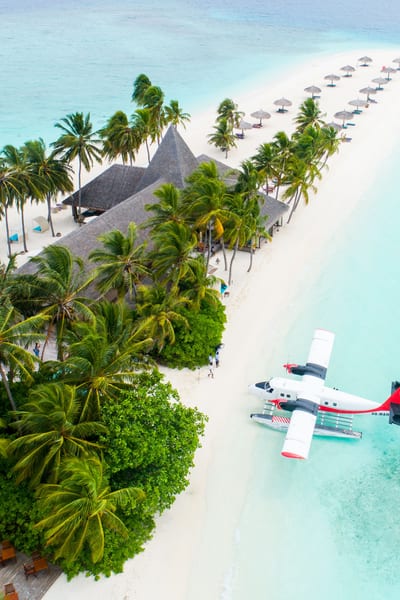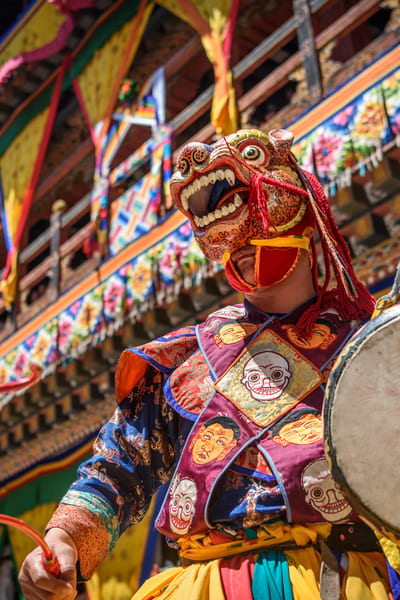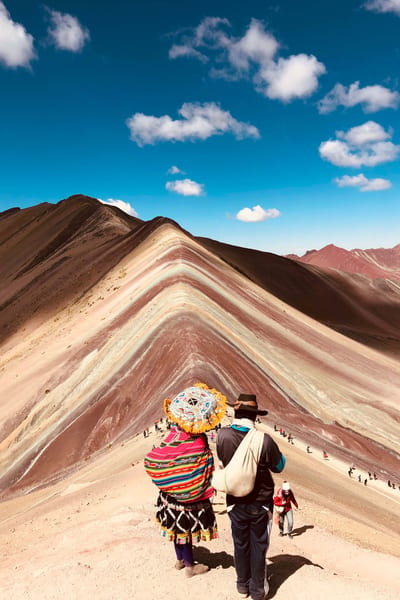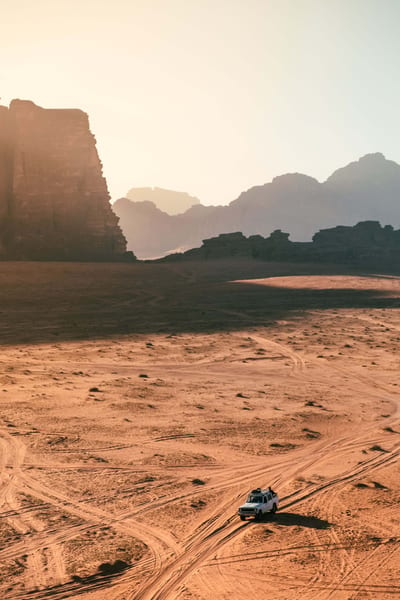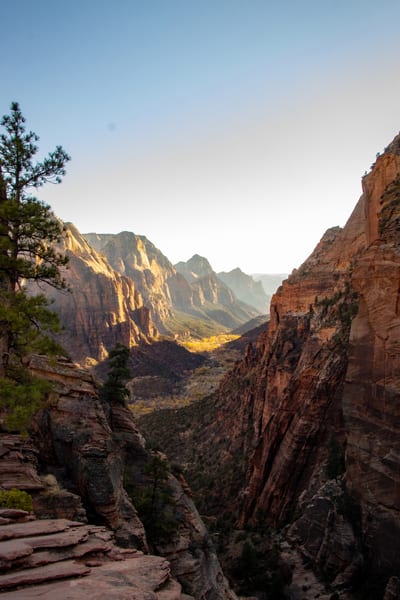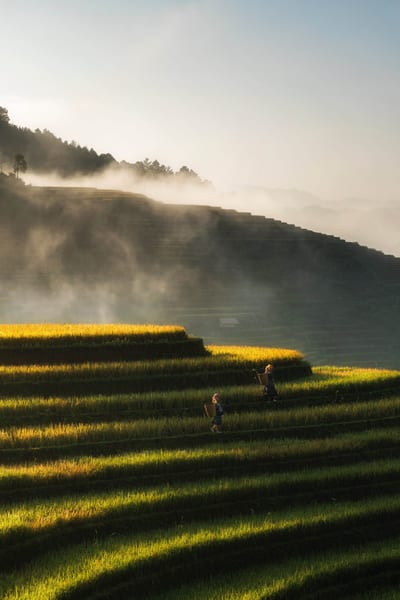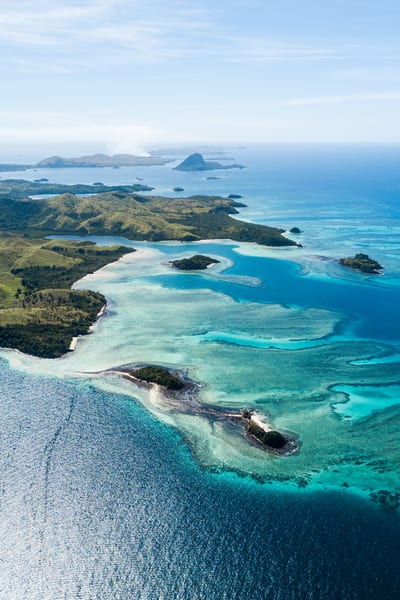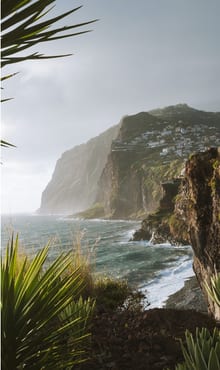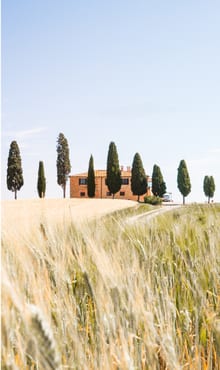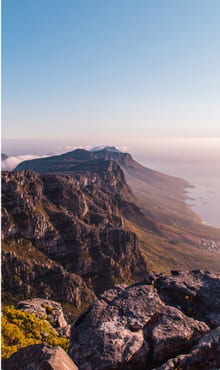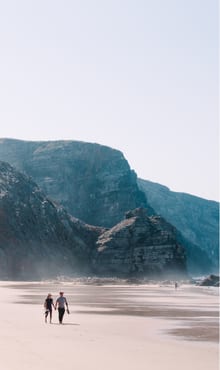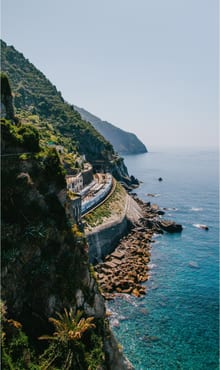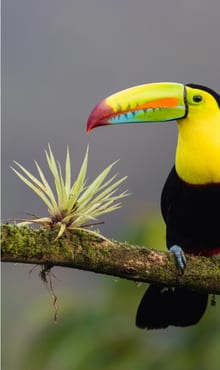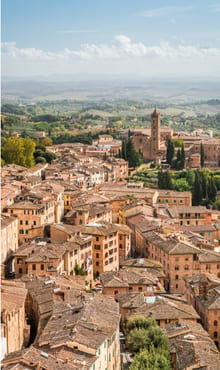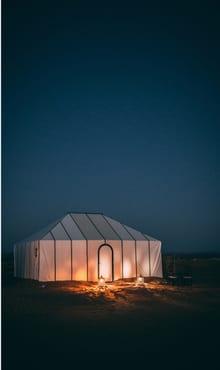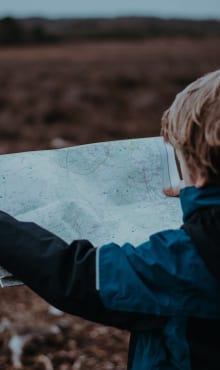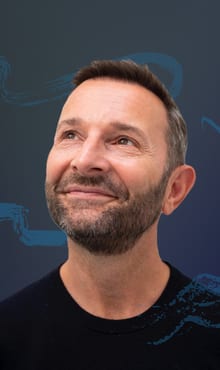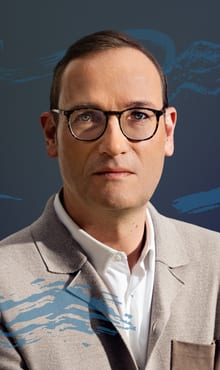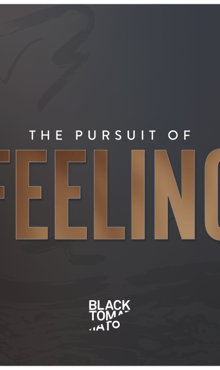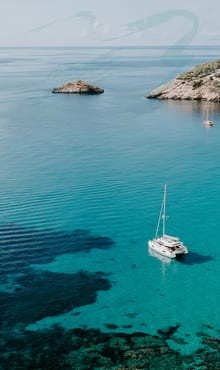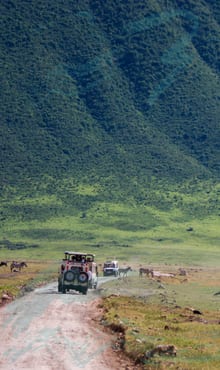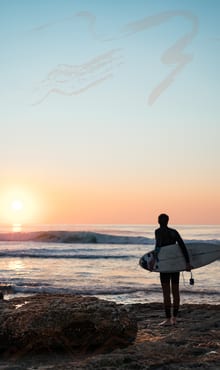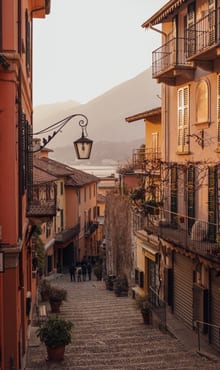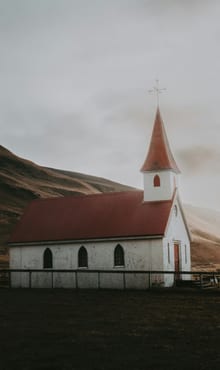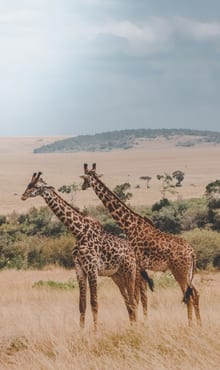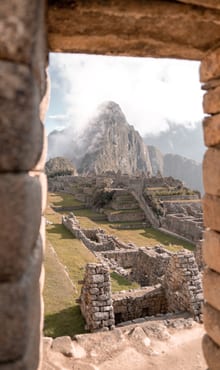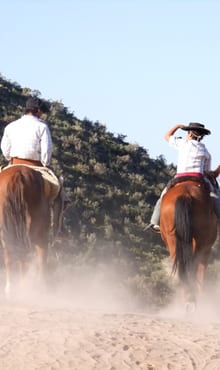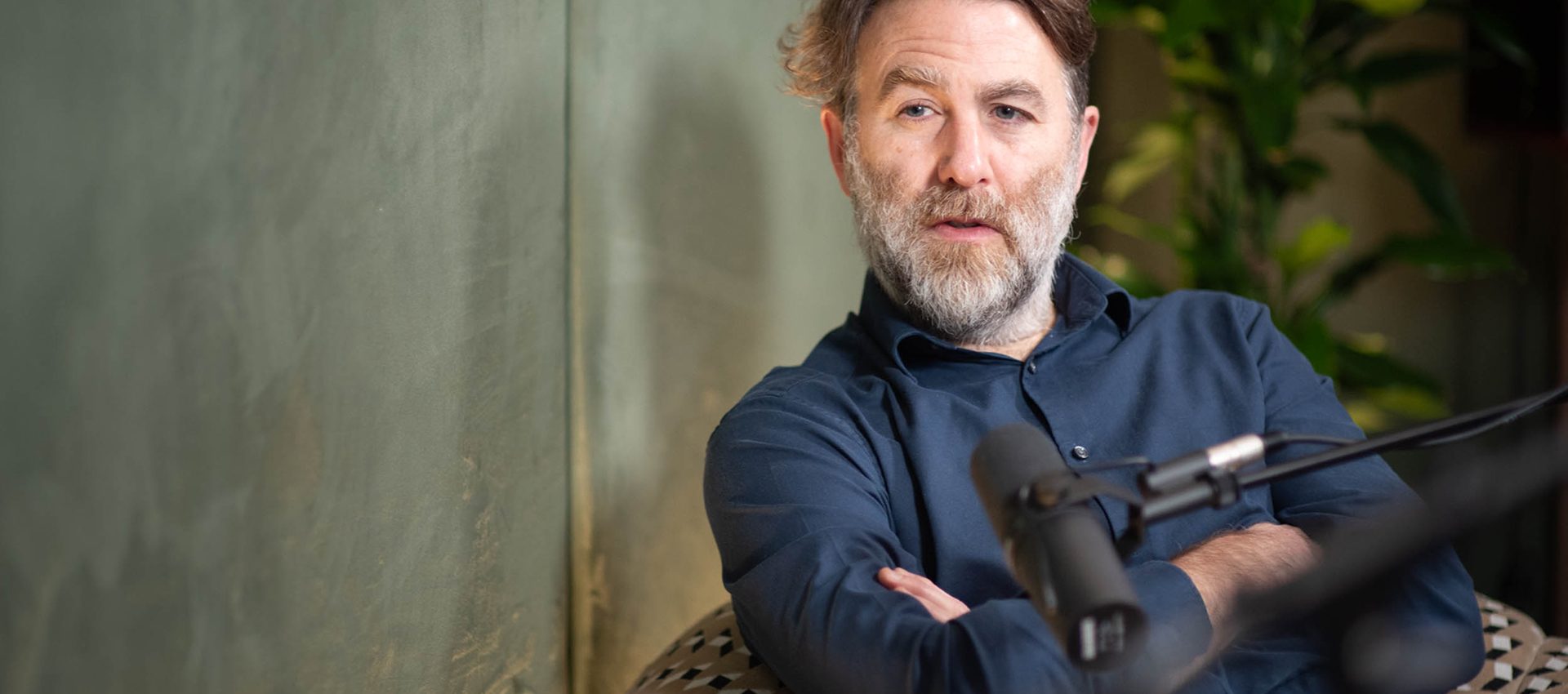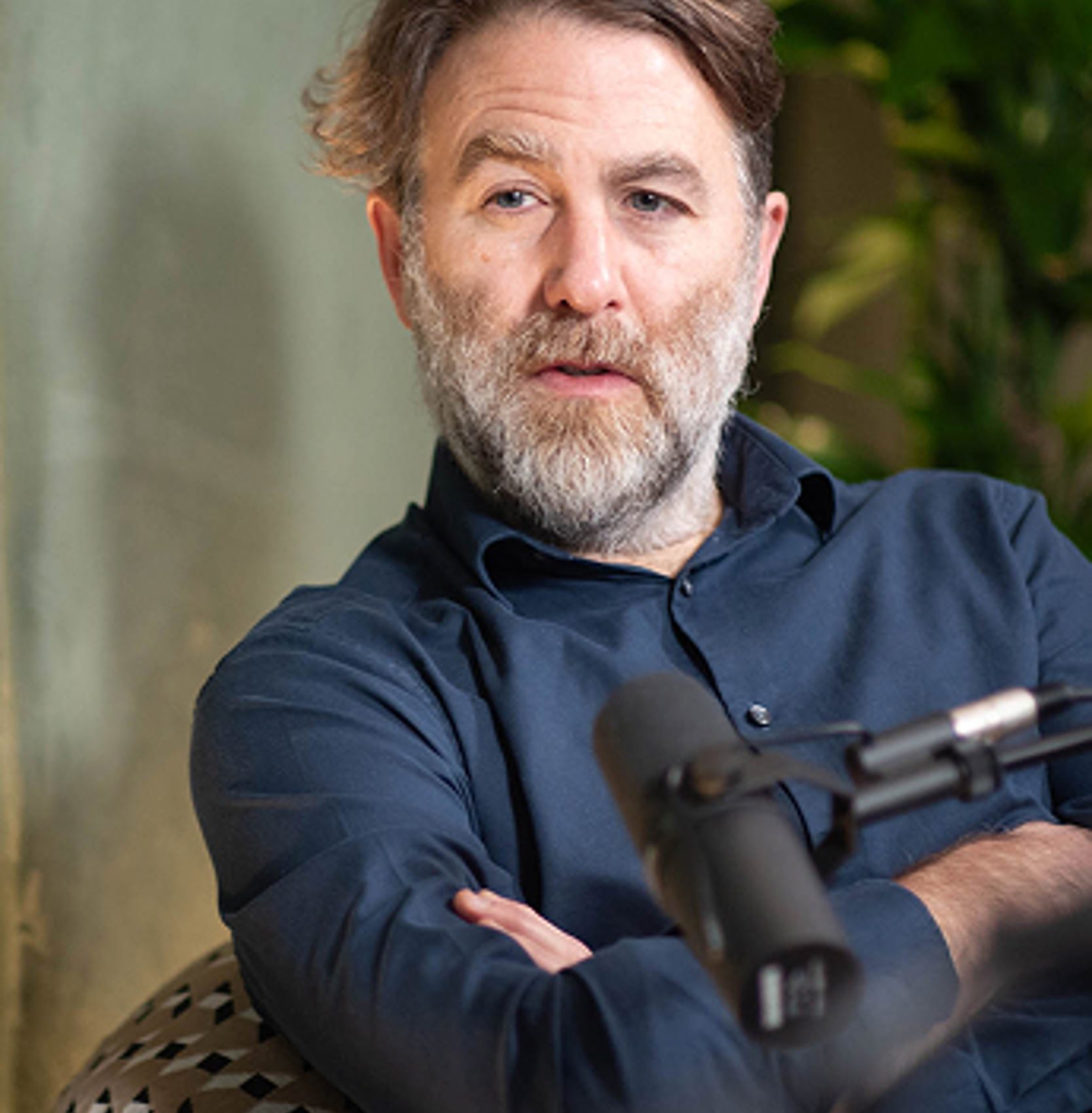Transcript
Owen Vince: 0:00
You’re listening to the Pursuit of Feeling, a podcast by Black Tomato. In this series, we want to explore not only the world of travel, but the world of emotion and what it ultimately means to feel our way through the world. Or to put it another way, what does travel do to our brains and our hearts, and even our souls, when we set off for new places and faraway shores?
Tom Marchant: 0:28
Tom Robbins is the travel editor of the Financial Times, where his ability to dig out unique stories and deep travel insights has made the FT’s travel section one of the most trusted authorities on how and where to explore the world. Before taking the helm of the FT, tom covered everything from business to adventure, always with his signature curiosity and sharp editorial eye. He’s also an expert on skiing, having written extensively on the subject, including his book White Weekends, making him one of the go-to voices on mountain travel. Here on the Pursuit of Feeling, we explore the profound connection between travel and emotion, the way journeys move us, inspire us and shape who we are, and few tell these stories better than Tom. Today, we’ll dive into the adventures he’s taken, the emotions they’ve stirred and how travel continues to define his world.
Tom Marchant: 1:13
I am delighted to have the esteemed travel editor Tom Robbins, travel editor of the Financial Times, on our Pursuit of Feelings podcast, focusing on the interesting relationship between travel and the emotions it creates. To kick it off, I’d like to say thank you very much for joining us, tom. And yeah, let’s just tell us a little bit about yourself and how you first started getting involved with this world of travel.
Tom Robbins: 1:36
Thanks, tom, great to be here. I’m still waiting for the call up from Desert Island Discs, so this is an expects thing. Thank you for having me. So yeah, travel, I mean it’s something I’ve never thought about really, how I first got into travel or sort of got wanderlust. But thinking about it last night I was thinking back to sort of teenage years and I always kind of had this absolute certainty that when I left school what I wanted to do was go travelling, and I think that was quite common at the time and a bit less so now. Which is, which is you
Tom Robbins: 2:07
know, slightly sad thing. But and where did it come from? I think probably part of it was that when I was 15, Around the World in 80 Days came on. Tv Michael Palin’s great series, of which he did numerous different seasons going on different journeys, but that was just. You know, it was a huge thing at the time in British culture and you know, the viewing figures were insane.
Tom Robbins: 2:27
It was like one in three people is watching it on terrestrial TV on a Saturday night and that really, I think sort of connected with me as an impressionable teenager, and so I knew that I wanted to, you know, follow in his footsteps and go travelling. And so, yeah, when I left school, that’s the first thing I did. I worked for a bit, just, you know, to get some money together, and then hopped on a plane to Delhi and went up to Nepal I mean classic sort of gap year stuff.
Tom Marchant: 2:54
What a first place to go to, to Delhi. I mean that moment, I mean.
Tom Robbins: 2:58
I remember the first time I arrived in Delhi, the overwhelming feeling felt stepping out of the airport as a sense of a different place, right I know we’re going to talk about emotions, and I mean just that as probably one of the most extreme emotions I’ve ever had, I think, probably arriving there.
Tom Robbins: 3:12
As you know, I’ve been on family holidays before but I’d never traveled on my own anywhere.
Tom Robbins: 3:19
And I literally came out of the airport clutching a plastic bag of heatrow Duty Free and a huge rucksack full of stuff to take up into the mountains because I was going to go trekking in the Himalayas and, you know, get hit by this wall of heat.
Tom Robbins: 3:33
And I just turned around and went straight back into the airport and there’s all these people there, you know, saying come and come and get in my taxi and get in my tuk tuk, and you know, just a huge kind of culture shock. And and I was also just so badly prepared you know that I’d got a friend who was already up in katmandu and I thought I’ll just go from delhi to katmandu and uh, you know I had to work out how to get to the station in delhi, how to buy a ticket, and the whole thing was, you know, was in at the deep end really, and I think the emotion of that was in a way terrifying but in a way incredibly valuable for a 18-year-old who, you know, thinks he knows everything you know and has been incredibly cocky in life here in the UK and I don’t know if you remember, in the Hitchhiker’s Guide to the Galaxy, my lame literary allusion.
Tom Robbins: 4:24
But there you go. There’s this thing called the total perspective vortex, which is a torture device which gives people an instant sense of their own insignificance in the galaxy. And it was sort of like a version of that, because it sort of suddenly gives you a perspective that you never had before, like instantly, and you realise that the world is just, you know, much, much bigger, yeah, than you ever knew and, you know, just completely different to what you knew.
Tom Marchant: 4:52
And I think that that’s a really valuable lesson, even though it’s maybe not pleasant at that moment, like you say, to go from, and I I remember a similar thing with a friend actually the guy I started black tomatoes when we went. We went to the philippines first summer of uni and stepping out at manila airport and it being so different and also back in those days, like you say, like the ease of planning just wasn’t. We had a tattered, lonely planet book and it was almost like terrifying. But then there was this feeling of right. You sort of almost like steal yourself a bit and it brought out sides of us, I think in terms of like practicality or curiosity, like to go get it done. That when you look back and go, actually that’s a really formative experience in terms of how you think about the world and I love that point about that how the world can beautifully sometimes make you feel really insignificant, which is a great thing.
Tom Robbins: 5:37
Yeah I mean totally agree. And, um, I mean, the good thing about that trip was, you know, I eventually did manage to get to catman, do, meet up with this guy, and we went about that trip was, you know, I eventually did manage to get to Kathmandu and meet up with this guy and we went trekking and it was, you know, completely revelatory really. You know, we were trekking with maps that we bought in Stamford here in London and they were just like terrible photocopies of sort of like that blue, you know early photocopy, and we’d, like you know, just random contour lines on them. And we got lost on our first day and we went the wrong way off the, you know, the established trekking trails. We went off it and we ended up in this village, completely untouristy, nowhere to stay, no infrastructure, nothing.
Tom Robbins: 6:17
And also it happened to be the first day of Holi, the festival, you know. And so as we walked into this tiny village, not sure where we were, two guys from the home counties, everyone just emerged and started throwing the paint around, you know the, the powdered, brightly colored paint, and you know, just gleefully screaming with joy, and then these two english boys turn up, uh, and then, yeah, I mean, we didn’t think about it too much at the time but looking back, you know, it was just a sort of wild travel experience and the local teacher in that village took us in and we slept on his floor and he gave us dinner and we talked about, you know, the whole development of the village and how they felt that they were slightly sidelined because they were not on the trekking route and how they were desperate to try and get tourism to start there. But no, no, it’s just fascinating and I think you, you know, that experience kind of set me up then for thinking, yeah, this is definitely what I want to do.
Tom Marchant: 7:06
I was going to say like a couple of things are interesting that notion that sometimes when you’re in the moment you’re enjoying it, but it’s when you then reflect back on it they almost sort of take on a greater might or significance in terms of the impact it had on you to realize and see what you’ve done. And on trips like that or was it trips, that which it clearly sounds like there’s a source of so many ideas for stories or things to be shared. Is that where sort of the seed was planted within you about? I want to go and write and tell stories about travel or through travel, or use this as a vehicle to kind of you know something to work on or explore? Is that where the kind of the seed was planted?
Tom Robbins: 7:39
Not really, to be honest. I, you know I just wanted to keep travelling. That was kind of my main goal. And I went to university, did an english degree, you know, specialised in old english, set me up for absolutely nothing in a professional sense, uh, and got a job at trail finders and worked there for a year, you know, really just so I could keep travelling. And you know it was a very sort of vibrant place to work because everyone was there for that reason.
Tom Robbins: 8:05
You know, everyone was young and everyone was there and you’d be just going to work and someone would have flown back from Kazakhstan or whatever you know all over the world, and so that was great fun.
Tom Robbins: 8:15
But at the same time I’d started getting interested in journalism and not travel journalism, actually news, which is where I started and went to study and actually news, which is where I started and went to study and then travel, kind of kept going on in the background. And you know I did news for a number of years, I don’t know six years or something.
Tom Marchant: 8:31
And would you travel with that?
Tom Robbins: 8:33
role as well. A bit but I mean mainly just doing um sort of you know UK news stories a lot of home affairs, that sort of thing.
Tom Robbins: 8:40
I did get one amazingly lucky gig as a young reporter on the Sunday Times who was mainly covering, you know, whatever news had happened that week. You know, train crashes, political things, whatever. But the millennium rolled around and in Fleet Street everyone got into this weird competition about who was going to see the millennium first, the new millennium, yeah. And so people were sent off. It would never happen today. But people were dispatched around the world to be sort of like oh, I’m just on the dateline, and the Sunday Times had people in various places. But I got sent to Antarctica because it was, you know, 24-hour sun there and it was technically the first sun.
Tom Robbins: 9:24
I was going to say I didn’t, you know whatever, and it was technically the first son of the new year, you know, whatever, and it was just just a bizarre thing to go and see how they’re celebrating new year’s eve. Uh, I was at the new zealand base in antarctica and did you pitch that?
Tom Marchant: 9:35
no, I was gonna say that’s the pitch of dreams, or was?
Tom Robbins: 9:38
that I mean, yeah, I would not have had the gumption to pitch that as a sort of young you know the young guy on the news desk. I. I think they’re basically like, oh, it’s going to take, you know, it’s a long trip, so who can we, who don’t we need for the next two weeks? So, yeah, so they sent me off there and actually I filed the piece and they’re like great, right, when are you back in the office? I was like two weeks time, so time. So no, that was that was just a, that was a lucky break, but um, no, anyway, it was mainly mainly just doing news. And then I moved into doing feature stuff and then a job actually came up on the observer newspaper and I really saw that there was a chance of doing travel, combining travel, my great passion and work, and so leapt at that and got into it that way.
Tom Marchant: 10:19
Yeah, amazing. And you’ve seen the travel industry evolve, change, progress over the years and you’ve seen the travel industry evolve, change, progress over the years and you’ve obviously been beating hard, telling some of the best stories and finding some of the best insights, and you know we’re talking a lot about. When we started Black Tomato, one of the big things was about people might not know where they want to go, but know how you want to feel when you started to develop your storytelling. Has that changed from when you first started covering travel to how it is now and did kind of that idea of pursuit of emotion or finding interesting things to write about beyond, just like this is a place in these activities? Was that really present then or is that kind of developed or how does that sit in your world?
Tom Robbins: 10:57
yeah, I mean sort of how much emotion is in a story is it’s a tricky one and I don’t know it.
Tom Robbins: 11:02
It’s quite subjective and depends on the outlet, you know magazine and newspaper are quite different, but I think there has been a few changes in trend. And when I was starting, you know the big name in travel writing was Bill Bryson. I mean still is huge, but I mean his sales were just like dwarfed the entire rest of the travel writing industry and sort of prompted this sense that travel writing has to be humorous. And so there’s a huge number of copycats who were doing like not quite as funny you know, travel journeys and a lot of newspaper travel writing sort of went down that route and sort of it was kind of like dad joke yeah, it was the sort of what they’re searching for, rather than something more you know, straight and possibly having more of an emotional connection. And then on the other side, you know there is the sort of the glossy mag way of doing it where it’s sort of like every single piece has to have a emotional epiphany in it you know, and that starts to feel a little bit forced.
Tom Robbins: 11:58
I think at times disingenuous yeah, exactly like every, every trip, on the final day we see the sunset and everything’s perfect, you know, and so I I hope what we’ve done is is, I don’t know just a bit more, a sort of emotional honesty to the writing and sort of, where there is something that is that is moving.
Tom Robbins: 12:14
It’s great to put that in and get that across and not be scared of doing it, because it’s not like in that I’m just a, a gag making travel writer. You know it’s real and emotion is important, so let’s say that, but also let’s not push it, you know yeah, and I think, like what we really enjoyed on the, when we talk about emotions it’s the gamut right.
Tom Marchant: 12:30
So it’s like when you first got into delhi. There’s that sort of terrifying fear, I think it’s. I think personally if I’m myself interested in writers or stories where you said the word there’s that honesty about kind of what you’re seeing or kind of the reaction it’s going to bring out in you. I think travellers are quite keen for that. Sometimes we have some people saying I’m looking to go somewhere, I’m going to feel kind of challenged or out of my comfort zone, but know that sometimes with that comes all sorts of kind of reactions that are quite interesting.
Tom Robbins: 12:57
Yeah, absolutely. I mean, I think there’s a slight danger in pitching it like just about emotions, because it obviously sounds a bit like oh, I’m just thinking about me and what I’m going to feel. Whereas you know, one of the great drivers of wanting to travel is to go and meet other people and see, you know what they, what they want to say about the world and and sort of not forget about yourself but kind of, you know, find something new.
Tom Marchant: 13:25
It’s saying this is the only way you know that you can feel, or also going to somewhere and packaging something as this is how it’s going to make feel and ignoring kind of the other cultures and how you might react to that. And I think it’s trying to maybe stimulate, you know, a level of curiosity to kind of you know, like the sense of the unknown right, and sometimes, when you have something that’s unknown, the interesting bit is how you’re going to react to something you don’t know.
Tom Robbins: 13:49
And that could be good.
Tom Marchant: 13:51
I mean, do you ever like, when you’re planning trips, both personally or for EFT do you tend to look at like, right, that’s just a part of the world I’m interested in, or is it going? I don’t necessarily know where I’m going for, but I’m looking for this kind of a trip which is maybe it will challenge. I’m looking for total disconnection and I want to see how people in that kind of world operate. What’s the kind of the thought process as you look for places in terms of what matters?
Tom Robbins: 14:16
when you go there, it’s very different professionally and personally and you know, professionally, we’re looking at some reason why it’s in the newspaper now, because writing appears in a section of news features. It’s not just a travel magazine, so it has to have some newsiness to it. So there’s always, like some, you know, there’s a new flight going there or there’s some reason or some trend.
Tom Robbins: 14:38
So that’s always the sort of driver for why we decide to go to that place. Yeah, yeah, newness, um, I guess, is it is the way of saying it, I mean. But then once you have that, you know the piece can explore deeply, whatever you know. But then personally, absolutely yeah, I mean I think my main drivers are sort of getting to somewhere remote, away from other people. I love going to mountainous areas because you tend to find that in small, remote places you tend to have more authentic interactions with people and cultures.
Tom Marchant: 15:03
I think and is that that getting away from other people because I I’m the same um? Do you think that’s also part of just a natural reaction to the kind of the ebb and flow, the mania of the day-to-day, like we’re in these kind of pre-manic lives? I mean, it’s obviously changed a lot last couple of years where, arguably, some people say we’re more disconnected remote, I personally think we’re almost more connected just because of the digital world we operate in. I mean, is that something that you think was almost a reaction to that, or was it combined with the way you’ve always liked it?
Tom Robbins: 15:31
Yeah, I think that’s definitely part of it. And you know. The other thing is just how much change there is in our daily lives. You know, maybe it’s exacerbated by being a journalist, so you’re always looking at, you know what’s new and the constant flow of news. But I mean just living in London. You know, when I go around the streets everything’s changed.
Tom Robbins: 15:55
You know, I’m not make myself sound incredibly old, but I mean in the 20 years since I started going out around Old Street and stuff, you know the whole place is changed. The only thing that I still recognise are the old pubs you know the 19th century pubs, and I have to navigate by them and everything else is new. So there’s this huge change everywhere and when you get out to sort of wilderness places there is a sense of you know that that hasn’t changed as continuity there’s a sort of eternity to those places and it’s I don’t mean wilderness, like it has to be, antarctica, I mean.
Tom Robbins: 16:18
You know, if you go to the lake district you know that landscape hasn’t changed at all and that can be very sort of refreshing mentally and and just sort of I don’t know, there’s something comforting about it yeah, maybe it’s it’s the wrong word to use as being it’s nostalgia, but I see that personally.
Tom Marchant: 16:32
You’re seeing people saying what are you looking to feel? Some people are like I want to feel like you know there’s a constancy, like a connection to somewhere that I felt good or I know, but it’s interesting and I can keep revisiting, not necessarily because I want to see the change. It’s almost like Ireland’s wrong word because, trying to use a metaphor I’ll get it wrong but but somewhere you can go back to and there’s a calm or something to it yeah, totally.
Tom Robbins: 16:51
I mean, I think nostalgia is, uh, it’s interesting because I mean, I’ve said already, newness is what we’re often travelling for, and discovery and for a newspaper sense, you know, absolutely newness is everything, but actually nostalgia is, is a big driver, and I’m, you know also that sense of instant nostalgia, like you get to the final day of your trip and you’re nostalgic for day one and you know, I’ve definitely had that before, and you sort of you know that you’re going to be looking back on this for the rest of the year and thinking back to those days you’ve just had.
Tom Marchant: 17:22
So I talked about travelling for certain emotions. Has there ever been a time that you could recall when you’ve traveled and being, and it surprised you with unexpected emotions, things you weren’t anticipating?
Tom Robbins: 17:32
Yeah, absolutely. I mean, we sort of talked about how I got into travelling and travelled more and when I became a travel writer, obviously that opened the doors and I could travel much more. You start to become a little bit not blasé, but you’re used to it. That initial sense I was talking about a fear of culture shock arriving in Delhi. That’s long gone and you feel completely comfortable and you know the danger obviously is. Then that starts to numb your reactions a bit and there’s also the sense you know of places having become a little bit more the same you know, especially cities.
Tom Robbins: 18:05
you know that we’ve seen over the last 20 years whether it’s Instagram that’s done that or whatever but you know design and food and whatever you know, it’s harder to tell whether you’re in Brooklyn or Hoxton or wherever you know, Anyway, I had a bit of a sense of that.
Tom Robbins: 18:18
And then around 2008, I went to Greenland with my family. We sort of arrived there and I was sort of thinking it would just be, you know, a nice sort of outdoorsy adventure kind of trip. I hadn’t really thought too much about it. It really surprised me with the sense of discovering something new and your assumptions about the world being wrong. I’ll just give you an example because that sounds nebulous.
Tom Robbins: 18:41
But on the first day we went from Nuuk, the capital, to this camp up the fjord, the side of the fjord, and on the way the boat driver said let’s try some fishing. And I was like, oh, I’ve got two toddlers with me, it’s six o’clock, I mean, this is not a time to be messing around with fishing rods. Anyway, he got out these they’re not fishing rods actually, they were just like wooden frames, like a sort of old football rattle rattle, you know, from the 1960s, and unwound the twine off these and they had hooks on them, no bait at all, drop them down into the fjord. I was thinking, oh, this is gonna take ages, it’s gonna be cold, the kids are gonna get angry because they’re not eaten. Um, anyway, we just unwind them.
Tom Robbins: 19:23
And he says, right now, pull them back in. So we literally pulled them back in. Look down, suddenly I could see all these sort of flashes of silver and the water was so clear that you suddenly realised that you could see hundreds of metres down and it sort of gave you a slight sense of vertigo because you weren’t aware of it. Anyway, he’s pulled them up and on that first line there was like three massive cod on my line, three or four more on my daughter’s, and you know, no bait or anything. He just pulled them straight up and just because the fjord is absolutely full of cod and the kids were sort of like, oh great, that’s fishing. And I was like whoa, that’s not fishing. That’s not normal fishing. Normally you’re here for hours.
Tom Robbins: 19:56
Yeah, and just you know, there kept being things like that and that just required you to sort of forget all your assumed learning and you know everything that you’ve built over the years. It just felt like you’re getting rid of that and learning something for the first time. Another day we were going out on on a speedboat and I sort of had this really weird sensation of not moving, even though it had a big engine on it and we were going at full speed. But because the air is so clear, things that are far away look closer, and so I was just like, wow, I can’t even really judge distance anymore. You know, that’s sort of that, that kind of newness, and so I thought I mean that whole trip was was a succession of those kind of things.
Tom Robbins: 20:34
And you know, looking at icebergs, and you know you’ve always thought icebergs are white and totally silent and serene. They’re the sort of epitome of that. You know, actually up close, they’re all different colours, you know, some of them are blue, some of them are gray, some of the white, and because we’re there in summer, they’re constantly moving because they’re melting in the water and so they’re just constantly hissing because they’re releasing air or they’re turning over because their centre of balance has changed. Constant motion. I’ve just never thought about that before and yeah, so that kind of trip really is very refreshing, to have that kind of sense of right. Wow, actually I don’t know everything about the world.
Tom Marchant: 21:12
I was going to say for the expert and authority you are as one of the leading travellers in the world and therefore totally understandable why that you could at times think well, I’ve kind of might not have been there, but I’ll know what it’s like to see somewhere bringing out that reaction. That’s the power of travel, isn’t it?
Tom Robbins: 21:31
It’s one of the beauties of how the world keeps throwing things up that can challenge you, but I wouldn’t want to give the impression that it always has to be really far-flung new destinations it can be.
Tom Robbins: 21:38
Sometimes you can get surprised by emotions in weird moments and sometimes it’s the downtime in trips I remember me and my kids always talk about. This time we went on a great trip to Trieste in Italy and the thing we always look back on what was the best thing? We did loads of great things, but the thing that they enjoyed most was this hour when we were in the hotel room and we watched archery on the telly. It’s one of those things where you can’t get any channels but we, for some reason, we’re watching an archery channel and they loved it and it was the sense of oh, we’ve got nothing else to do at the moment, but we’re all there together having this slightly weird experience.
Tom Marchant: 22:11
I love that. It’s funny I’ve got young kids too and the things that stick out suddenly are you plan and you think you’ve got a feeling about what’s going to work for them. But it’s how these things jump out and give you a different take. I mean, it wasn’t, as I remember some years ago, a friend. They put together this whole kind of family travel. They’re trying to be quite adventurous. So our clients went and they in Asia and there’s lots of hiking with kids on shoulders and it was quite extreme and quite challenging. I think the person got back and said for the place you went to, my kid got. Most excited was when we stopped at a service station on the way home from the airport and there were three cows by the fence and you know, two weeks in Asia. There was in Asia because nothing compares to these three accounts.
Tom Marchant: 22:48
So it’s like the money, but I think there’s also that there’s that idea, isn’t it? Or that notion of like, when you’re kind of seeing the world through like children’s eyes, or seeing how they’re reacting to that.
Tom Marchant: 22:57
That’s one of my greatest joys is being travelling with my kids and seeing. Like you said, it doesn’t have to be. Yeah, I still think about this place. Growing up, we used to go on family holidays south of France, in the Vendée, and there’s this little village called Apremont and I still think about it a lot and it’d be interesting to go there this summer. This little lake that you go to and I’ve probably built it up in my head, I’ve really romanticised it so we can see what it’s like but that still to me sounds one of just messing around in the lake and just everything, feeling just relaxed and at a point in time. So it’s quite nice when you’re in a world of yeah, what’s next, what’s new? When it’s charging around to kind of recalibrate, kind of what might be important.
Tom Robbins: 23:37
Yeah, We’ve gone back a few times to this particular cottage in the Lake District, which is totally remote, off-grid, you know, stunning views and all the rest of it. And we said afterwards to our youngest we love going there, he loves going there. What’s your favourite thing about it? What’s so special? He said the chopping boards. They’ve got a set of different chopping boards for meat, fish and vegetables or something. I was like, oh right, okay great I love that, but anyway, stupid example.
Tom Robbins: 24:04
But talking about adventure and how travelling with kids kind of opens your eyes again. I mean, we’ve done a couple of walking trips in the Alps which have been a good success, which were kind of worked out that with kids they will walk a long way but as soon as it goes uphill they’ll start moaning. So they’re happy to walk downhill. I mean, all kids love being outside. There’s a natural sort of desire to climb on rocks and stuff. You know every playground has a climbing frame in it, um, but they’re just, you know, plodding uphill. They all just start moaning, which makes the holiday awful.
Tom Robbins: 24:34
So we worked out that you could go to the alps in summer where a lot of the ski lifts are still open and they’re not that well marketed or publicized. It’s quite hard to know which ones are open, but you can do it if you research it. And so we worked out a route of where we’d go up a ski lift every morning and spend the day walking over into the next valley, stay in a hotel there or a refuge and then the next day go up again and keep going.
Tom Robbins: 24:58
So do like a multi-day walk, that’s kind of easy for the kids. I mean, it’s still a long day, you’re still out all day, but that’s worked brilliantly and we did it in Italy. But just you know, walking on a, on a mountain path, that I wouldn’t think twice about doing it with my son holding my hand. And suddenly you’re like, oh right, yeah, there is a big drop down there and he’s not aware of it. He’s bending down to pick up rocks and stuff. And you know I remember doing this and after we’d done this section of steep path, we got to the far bit and I sort of looked down. I realized my hand was sweating with, you know, I was absolutely adrenaline and you know, excitement, terror that like I haven’t experienced for years, you know, on this completely benign little mountain path, you know, but it kind of gave a thrill to the whole thing yeah, we’re talking about like the physical challenge.
Tom Marchant: 25:43
Like you are a you know, an amazing skier renowned writer on it. You know your book White Weekends is a fantastic one. You like obviously clearly physical challenges in different ways, but it seems that physical challenges, just to what you’re saying there can kind of almost intensify the emotional experience that comes with it. Right, do you see that and why do you think that is? I mean, apart from it being terror aside. But what do you see that connection as?
Tom Robbins: 26:04
I definitely do. I mean, it’s quite hard to explain why, isn’t it? But I think there’s a sense of doing something real. You know, if it’s something that’s challenging physically, you know it’s. It’s not a sort of confected uh activity that that someone in a, in a marketing department, has thought up you know it’s like it’s a real thing that’s challenging you, and the emotions are obviously real, which is really what we’re in search of.
Tom Robbins: 26:24
There’s also that sense of you know. Happiness lies on the other far side of doing something difficult. I’d love to say was nietzsche, but I think it’s probably from harry potter.
Tom Robbins: 26:35
And so there is that sense of, you know, I’ve got a focus for this trip, which is great. You know, I think that’s really important for people to have something, that I’m not just going there then I’m going to wake up on the first morning of my trip and think what am I going to do? They know there’s a focus to this and that’s, in a way, more important than achieving whatever getting to the top of the mountain or something. It’s like having that goal and then working towards it in the lead up to the trip as well, but, uh, during the trip, and then hopefully achieving it and feeling the sort of the sense of that you’re going to have something rewarding to look back on um, so satisfaction as well, isn’t it?
Tom Marchant: 27:08
it’s. It’s like the notion of the earned experience, like where you feel like you’ve worked, you know I thought you hit the nail on the head there about, like you know, before you’re going you’re thinking about it and when you’re there you’re focused and whether it’s a really long trek or it’s climbing a mountain or skiing tough routes or doing a marathon, place at that end point, no matter where you are, how you’ve done, you feel like I’ve worked hard for this, I’ve earned this experience and the endorphins. Maybe you get from that, that sense and again going back to what we talked about earlier sense of reaction to our relatively cozy day-to-day it just seems to be producing far more heightened than you, I guess definitely.
Tom Robbins: 27:43
I mean, I think one thing I would say that people don’t talk about too much, but definitely people have said to me, is that there is a definite sense of anti-climax. Often after you’ve achieved you know, if you’ve been working all year to go and climb Mont Blanc or something or do a marathon the idea that you’re going to reach the top of that mountain and have some kind of instant revelation and the angels are going to sing is actually not there. I mean, it can be, it can be amazing if it does. But a lot of people feel like, oh, all that goal I’ve had all year it’s gone. Uh, they feel a bit of, you know sense of emptiness afterwards and anti-climax as they get on the plane to come home.
Tom Marchant: 28:19
But in my experience, you get a longer term benefit and you know it’s over the next year that you can think back to it and I totally agree and and it’s sort of like it’s not about sort of ticking things off to say I’ve done it, but the longer term reflection on that was significant. A bit like we were saying earlier about the stuff you do when you first went to Delhi and you look back and go. I remember I did the the new york marathon last year and yeah, I definitely remember finishing and going, ah, and then within about two minutes after my legs were seizing up and just going and seeing friends at a bar, just thinking it was okay and then still thinking that was a long time thing, but then, as time’s gone on, you go, that was great and then actually almost acts as another catalyst.
Tom Marchant: 28:59
You know I’m gonna do something else, but yeah, definitely.
Tom Robbins: 29:02
I mean, I think, with adventure though it’s important to say adventure doesn’t have to be, you know, something physically difficult running a marathon, whatever and you know thinking about what. You know what constitutes an adventure, and you know we’ve had. You know, driving a driving trip across America could be an amazing adventure. We had a great long weekend on a narrow boat on the droitwich canal, you know, and it was definitely an adventure because we’ve never done it before. We’re driving this great big, long boat and not sure what we’re doing, and I think, for me, the the key is that you have agency, that you’re the one making the decisions. I mean, it could be that it’s a city break and you’re the one exploring the galleries and bars and whatever you know, but you’re not.
Tom Robbins: 29:43
You know in aviation is this phrase that passengers are self-loading freight you know that you’re being directed by someone else. I think, wherever you have your own agency, you’re the one making decisions. Then there’s a sense of adventure to it, and that’s not to say only independent travel is adventurous because you know, loads of the best things I’ve done have had a guide with me and organised through a tour operator, and they’re the ones who’ve opened the doors to that experience I totally agree and I think, like this sense of adventure, right, which is what comes with that, what does it mean?
Tom Marchant: 30:14
it’s like the not knowing, the kind of every day being something different.
Tom Marchant: 30:17
You’re not knowing how it’s going to make you feel that that is an exciting thing, that’s an interesting prospect and it’s funny.
Tom Marchant: 30:21
You’re absolutely right. I think I’m not just saying because you know I’m a tour operator, but we often talk at black tomato and it’s sounds like cliche about this notion of like framed spontaneity, right. So it’s our job to kind of introduce people to parts of the world and be there to kind of suggest and and put together but to then encourage to go off and have moments and go and discover and have your own agency to do that. It’s never been been about individual preferences, sort of going I need every hour, every day, accounted for, because I think some of the best things that ever happened to me or clients have done things that are almost like the unexpected and tiny things that come with that where, like you say, it’s nice to feel that you’re discovering too, and I think, never losing sight of that feeling. Making people feel that you’re discovering off your own back, I think, is sight of that feeling, yeah, making people feel like you’re discovering off your own back.
Tom Robbins: 31:06
I think it’s really important, absolutely. I mean, I’d say my absolute, all-time favourite travel emotion is when you’re doing something and you just suddenly get struck by a sense of I can’t believe they’re letting me do this. You know, and you know we’ve had that a few times we did a boat trip. We’re into venice and instead of staying in a hotel or getting around by gondola, we had a self-drive houseboat that you pick up just slightly inland, then you come down the river and then you just park up wherever you want in the lagoon and you explore it. But you’re sort of like the guy gives you an hour demonstration and it’s a big boat, you know, it’s got like six bedrooms on it and you’re just driving this around and you’re driving up past St Mark’s Square in Venice and you know there’s tourist boats going past and you’re the captain of your own boat. You’re like am I really allowed to do this? And I just think that the joy of that is, you know, immense.
Tom Robbins: 31:55
We went last year to Namibia and did a driving trip. Um, and again you’re sort of they just hand you the keys to the car and then you’re like, oh, the road, the tarmac, just ended. Now I’m driving on sand. Yeah, I don’t really know how to do this, but uh, it’s, you know, it’s fine. You know it’s actually the roads are fine, but it’s, you know, literally you’ve flown there and suddenly you’re driving along and there’s a jackal by the side of the road running along next to you as you drive or sort of getting your book out going jackals are like like fine, yeah, you totally, and I mean that kind of sense of I can’t quite believe I’m here and I can’t quite believe they’re letting me do it.
Tom Robbins: 32:30
That’s really amazing.
Tom Marchant: 32:31
I think namibia itself as a source of just interesting experiences I’ve always found fascinating. I think one of the greatest trips I took was there. In fact, you know this thing we talked about earlier about sort of an unexpected like emotion.
Tom Marchant: 32:42
I think first time I went to namibia this was way back in the day to show my age because I had a blackberry right and uh and black tomato wasn’t long started but ended up like up on the skeleton coast where we got to first and pulled out and no signal and those days we were starting the business. It really connected and my initial emotion was like panic right you know, and I think, and, and then probably some comedy footage of me running to the top of some dune holding a blackberry in the middle of the skeleton coast, one of the most remote places on earth.
Tom Marchant: 33:09
Unexpected, but quickly, that gave way to a kind of this is good. Actually, I can’t do anything about it and actually I can really lean into being present in this place, which then went on to give me one of the best experiences I’ve had in my life, because I didn’t have nagging in my brain. I need to check my phone to see what’s happened. You know, and I think it was in the area for like five days, you know, eventually got a flight down to Cape Town and as you land to Cape Town, you know, phone on signal came in and you know, you discovered that. You know the world hadn’t stopped turning, things were fine and actually it was probably one of the best things and unexpected that would happen and the panic was the unexpected emotion, but gave me one of the best trips, or I then tried to replicate it years later, going to places there was signal, going to my friend hide my phone right and then about an hour you know day later, just just give it back.
Tom Marchant: 33:53
Just give it back.
Tom Robbins: 33:53
So, um, uh, didn’t work, but yeah, namibia is a source of interesting things yeah, it’s like that reminds me of um, the story of the um polar explorer, erling Kager, pronouncing that wrong, I’m sure. But he did a North Pole I can’t remember if it was North or South Pole trek, you know multi-month, and as part of his insurance deal he had to constantly have his GPS emergency tracker on. That was part of the arrangement and as he got flown in the small propeller plane to drop him off at his start point for this long trek, he just quietly took out the batteries of this thing and left them on the plane because he wanted that you know he wanted to be totally alone, and he did it obviously these words like you know, digital detox are so overused and it’s kind of terrible being a bup.
Tom Marchant: 34:38
I still think it’s one of the best kind of forms of wellness out there if you can be alone and also being alone with your thoughts. Being alone in a place, you know, I think you get more interesting thoughts when you’re alone with them. So the ultimate luxury exactly when people talk to you about places and maybe countries you’ve been to or journeys you’ve taken that have just delivered something extraordinary for you. You know, are there any places that you quickly go to and go?
Tom Robbins: 35:04
time spent in this place is just an incredible thing to have I mean, you know, boringly, I’m afraid, my ideal is going back to the alps whenever I can, uh, summer or winter. Just think there is something very special about going to the sort of authenticity of the villages there and you know the fact that it’s in the right, in the center of europe, but you’re sort of hiding away up at the end of these valleys and where you know life hasn’t changed. Well, I mean life has changed completely because they were incredibly poor, uh, and now now they’re living this really nice lifestyle. But I mean the traditions are still very, very strong there and and obviously you know the options for like walking and skiing and everything are there as well. But yeah, I mean I just go back to greenland like a shot. Obviously there’s a new airport’s, just open there which makes it easier.
Tom Robbins: 35:50
I mean it’s, you know, obviously thinking about that in a slightly anxious way, because will it change what was there? My hunch is that it’s not a panic actually. Yeah, you know the numbers will still be limited and you know it’s such a vast place that it’s going to be okay. But yeah, absolutely We’d go back there. Namibia I had a great experience in the empty quarter in Oman.
Tom Marchant: 36:10
Yeah, I’ve still not got there yet. That always just grabs me, and once I still haven’t got there, I mean just special right.
Tom Robbins: 36:17
Yeah, I mean, it was again one of the sense of are we really allowed to do this? Because you know, we went with a tour operator and it was the guide driving us, was somehow connected to the Oman military and he was just going through these military posts where he was flashing his warrant card and we were driving further and further out into the desert and you know, sort of coming up to the Yemen border, you know highly sensitive, but just you know total desert and totally wild and amazing skies and just an amazing experience to be there.
Tom Marchant: 36:49
yeah, I think I feel that way about a few places in ethiopia. I think it’s always been really interesting. Just for the contrast as well. It just feels quite different as well. You feel quite lucky to go to some parts of it but, interesting as well.
Tom Marchant: 37:01
Like you know, there are places that are kind of preserved in time, but not in a kind of you’ve got to stay that way. You know it’s. It’s not kind of tourism coming in to say, you know, be like this forever and change, but it’s a really, really unique place in terms of the blend of different cultures yeah, yeah what about, um, for good reason, one travel journalist of the year many times.
Tom Marchant: 37:18
Is there a kind of a magic formula? Maybe not asking to give it away, but that that thing, that kind of you think, kind of defines your approach to, kind of when you’re looking at, kind of telling stories, I mean, I I guess.
Tom Robbins: 37:31
Uh, what I like to do, and encourage our ft writers to do, is to not just think of themselves as a tourist who’s writing down what they’ve done on their holiday. You know, one totally valid approach to travel writing is I’m writing about the experience of a holiday. I should just go as a holiday maker and write down what happens to me, Whereas I think actually, no, you’re not just going as a holiday maker, you’re going as a journalist. You need to do more work. You need to interview people when you get there. You need to do some background reading before you get there.
Tom Robbins: 38:06
And you need to use that to tell the story of the place as well as the story of your holiday. You know, both of those are important and they’re both two sides to the coin. And if you were just talking about the place, then it would sort of veer into foreign reporting, you know, and there would be a story about something happening there. Foreign reporting, you know, and, and there’ll be a story about something happening there. And it’s important that you’re giving the story and the emotions of your holiday as well, you know, because that’s what it’s all about, that’s what we’re describing.
Tom Marchant: 38:32
But I still think that you should be able to give the reader more than just yeah, what happened to you and do you think also by doing that it opens new ideas or ways to explore a place and if someone’s you’re looking at purely for this is probably my holiday, because sometimes people go on holidays, they can travel in quite a kind of parameterised way and I’m just going to do this, but actually by having more colour about the place, it might prompt people to explore further or consider other things.
Tom Robbins: 38:55
Yeah, or not necessarily go further, but just to delve deeper into where they are, and I think particularly just talking to people and arriving somewhere and saying to the local tourist board you know, I want to interview someone about this or whatever.
Tom Robbins: 39:09
That’s just such an important way of adding depth to where you are, you know, whether it be the history of the little alpine village where you are, or you know you’re meeting someone who’s. I did this ski tour trip in Switzerland and we ended up in this tiny village where it’s cut off the entire winter but there’s still a few people who live there and it’s literally it could be 1910. You know there’s no access to the outside world and you know, great to be there, great skiing to get there. But then I met there this old guy who’d lived there his whole life. He was wearing clothes that his, his wife had made his clothes for him. And you know, this was like last year, you know, and it was such a window into the traditions of this Alpine village, you know, and that would never have happened if I hadn’t been like, oh, I need to interview someone, you know. So that does definitely add to it.
Tom Marchant: 40:02
When we talk about emotion in travel, you know it’s a whole spectrum of emotions. It’s not just about the happiness and the joy. It’s also about we talked about being terrified. Is there anything that you can remember on a trip either unexpected or possibly where you felt scared or overwhelmed or perhaps even melancholic?
Tom Robbins: 40:18
Yeah, we touched briefly on that sense of anti-climax after a big goal a big adventure travel goal, and also we talked about nostalgia, which can be a sort of, you know, bittersweet thing. Um, I’ve returned to quite a lot of places in recent years.
Tom Robbins: 40:34
You know that I went to earlier and not consciously seeking out nostalgia, but I think that was probably there and I don’t know if it’s a pleasant experience or not really, but it’s certainly an emotion that you feel. The other thing is homesickness, which nobody who works in the travel industry talks about or likes to admit to, but I think I’ve definitely felt that in different places, and there’s the sense of re-evaluating what you’ve got at home because you’re away and you know, to the. The obvious thing is that you know you value more what you have at home because you’re missing it. Whether that be, oh, actually you know we spend our whole lives at home moaning about the country and what’s wrong with it, but actually, when you’re away, you know actually it’d be quite nice to go, yeah, for a roast dinner in a pub or something like that, you know, but also just like the family setup that you, that you miss and think back to and and makes you value more. So that’s definitely a valuable it’s like it’s the perspective it brings, isn’t it?
Tom Marchant: 41:35
yeah, I guess, yeah, being being around. That I definitely agree with that as well. Certainly like, yeah, the industry working. You know we can spend our whole lives. Often we do charging rounds, looking, and then you sometimes need that distance to reflect on what you’ve got at home. Last couple of questions, tom, this podcast is called Pursuit of Feeling. What does that mean to you?
Tom Robbins: 41:53
It’s just a way of framing it, isn’t it really? Because whatever is the driving factor for you going somewhere, if you say you want to escape, you want to go to explore a particular desert, there’s still an emotion or a feeling driving that, even if in your mind you’re just thinking, oh, I’ve always wanted to go to the Enedi Desert, or whatever. So I guess for me I would never say I’d write down a list of I want to feel this emotion and this is where I’m going to go. That would never happen. But I mean behind that, obviously, emotions and feelings are what it’s all about.
Tom Marchant: 42:25
Yeah, I think it’s an excellent description. And lastly, where’s next in the in the tom robbins travel calendar? What do you have coming up?
Tom Robbins: 42:33
um, well, very next is, uh, ski trips, which is to a ghost resort which is a, a resort that’s closed down in the swiss alps, and uh, there’s nothing there, just ruin falling over lifts. And the idea is that it’s weirdly becoming popular again amongst people going ski touring who are, you know, rejecting the sort of more commercialised world of skiing and just going to walk uphill themselves. You know that sport is absolutely booming and in the US it’s the second fastest growing sport after pickleball, you know, and 20 years ago it used to just be bearded old men who did this weirdly ascetic thing of walking up mountains, but now it’s got a whole new constituency. So, yeah, I’m going there to have a look at that.
Tom Robbins: 43:16
And then, yeah, I mean honestly, my partner is infuriated that I always want to go to cold, mountainous places. She’s desperate to go to somewhere warm, to Sri Lanka this year. But I’d love to go back to South America, which is somewhere I travelled a fair bit when I was much younger and haven’t been for a long time, just because of the length. You’ve got to go for a long time to make it worthwhile, and especially if you’re going to take the kids. And also Mexico, I’d love to I there.
Tom Robbins: 43:42
Latin themed nice, yeah, I mean, I think in the UK we have, you know, a real blind spot about South America and agreed just culturally and also in our travel industry, just because of how far it is to get there.
Tom Marchant: 43:53
But it’s fascinating always worth the trip. Brilliant. Well look, tom. Thank you so much for joining us on the Pursuit of Feeling podcast. An illuminating chat, as I hoped. It would be always inspired by uh, by what you share. So thank you for your time and uh and coming on.
Tom Robbins: 44:06
Thank you, Tom.
Owen Vince: 44:06
It’s been a great pleasure. You’ve been listening to the pursuit of feeling, a podcast by black tomato. If you’ve enjoyed this episode, then please hit the subscribe button. We’ve got a lot more episodes on the way and if you’re feeling inspired by what you’ve heard today, then visit blacktomatocom. We’ll help you to travel where your heart is. Thanks for listening.






